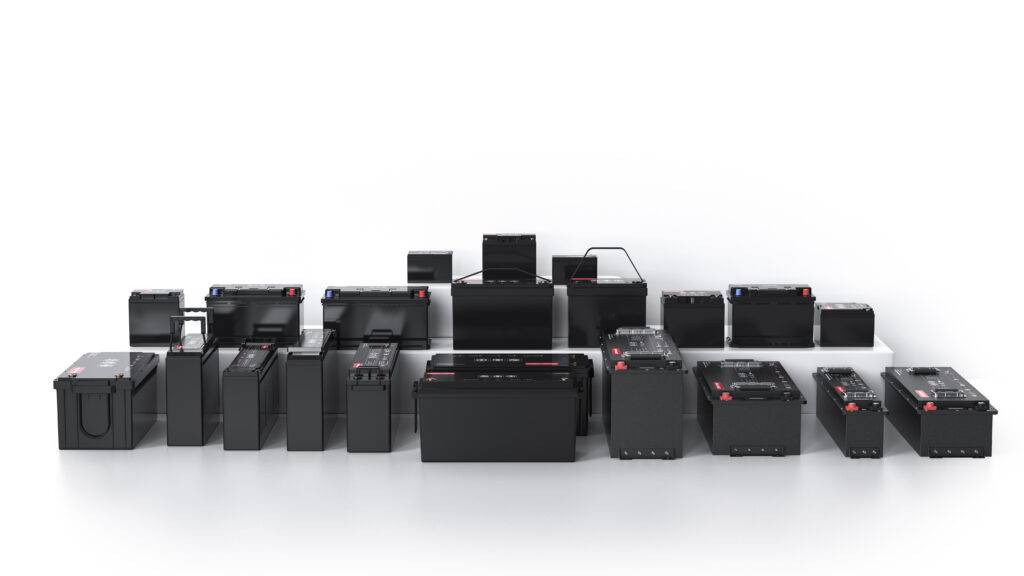LiFePO4 batteries, or lithium iron phosphate batteries, are increasingly popular in various applications due to their safety, longevity, and thermal stability. However, using a special charger designed specifically for these batteries is crucial to ensure optimal performance and safety.
What Are LiFePO4 Batteries and How Do They Function?
LiFePO4 batteries are a type of lithium-ion battery that uses lithium iron phosphate as the cathode material. They are known for their stable chemistry, which provides enhanced safety and longevity compared to other lithium-ion batteries. The electrochemical reactions within the battery allow lithium ions to move between the anode and cathode during charging and discharging cycles.
Chart: Structure of a LiFePO4 Battery
| Component | Function |
|---|---|
| Anode | Typically made of graphite; stores lithium ions during charging |
| Cathode | Made of lithium iron phosphate; releases lithium ions during discharge |
| Electrolyte | Facilitates ion movement between anode and cathode |
How Do LiFePO4 Batteries Operate?
LiFePO4 batteries operate through electrochemical reactions where lithium ions move from the cathode (LiFePO4) to the anode (usually graphite) during charging. When discharging, these ions flow back to the cathode, generating electrical energy that powers devices.
Chart: Charging vs. Discharging Process
| Process | Description |
|---|---|
| Charging | Lithium ions move from the cathode to the anode |
| Discharging | Lithium ions move back to the cathode |
What Distinguishes LiFePO4 Batteries from Other Lithium-Ion Types?
LiFePO4 batteries differ from other lithium-ion batteries in several key aspects:
- Safety: They have a lower risk of thermal runaway due to their stable chemical structure.
- Cycle Life: They typically offer longer cycle life, often exceeding 2000 cycles.
- Thermal Stability: They can operate effectively at higher temperatures without significant degradation.
Chart: Comparison of Lithium-Ion Battery Types
| Feature | LiFePO4 | Lithium Cobalt Oxide (LCO) | Lithium Nickel Manganese Cobalt (NMC) |
|---|---|---|---|
| Safety | High | Moderate | Moderate |
| Cycle Life | 2000+ cycles | 500-1000 cycles | 1000-2000 cycles |
| Thermal Stability | Excellent | Poor | Moderate |
Why Is a Dedicated Charger Essential for LiFePO4 Batteries?
Using a dedicated charger for LiFePO4 batteries is essential because:
- Charging Voltage: LiFePO4 batteries require specific charging voltages (typically around 3.65V per cell) that differ from other lithium-ion chemistries.
- Charging Profile: They benefit from a constant current/constant voltage (CC/CV) charging profile tailored to their chemistry.
- Safety Features: Dedicated chargers often include built-in safety features that prevent overcharging and overheating, which are critical for maintaining battery health.
What Advantages Does a Specialized Charger Offer?
A specialized charger for LiFePO4 batteries provides several advantages:
- Optimized Charging Efficiency: It ensures that the battery charges efficiently without damaging its cells.
- Extended Battery Life: By adhering to the correct charging parameters, it helps prolong the overall lifespan of the battery.
- Enhanced Safety: Specialized chargers are designed with safety mechanisms to prevent common issues like overvoltage or excessive heat.
Chart: Benefits of Using a Dedicated Charger
| Advantage | Description |
|---|---|
| Optimized Efficiency | Ensures proper charging voltage and current |
| Extended Lifespan | Prolongs battery life by preventing damage |
| Enhanced Safety | Includes protections against overcharging |
How Do You Select the Appropriate Charger for LiFePO4 Batteries?
When selecting a charger for LiFePO4 batteries, consider the following factors:
- Voltage Compatibility: Ensure that the charger matches the voltage requirements of your specific battery configuration.
- Current Rating: Choose a charger with an appropriate current rating for your battery’s capacity; typically, a charge rate of 0.5C to 1C is ideal.
- Safety Features: Look for chargers with built-in protections such as overcharge protection, short circuit protection, and thermal cutoff.
Industrial News
Recent advancements in battery technology have highlighted the importance of using specialized chargers for different battery chemistries, including LiFePO4. Manufacturers are increasingly focusing on developing chargers that not only meet voltage and current specifications but also incorporate smart technology features that enhance user experience and safety. This trend is crucial as electric vehicles and renewable energy storage systems become more prevalent.
Redway Expert Insights
“Understanding the specific needs of different battery chemistries is vital for maximizing performance and safety,” states Dr. Jane Redway, an expert in energy storage solutions. “Using a dedicated charger for LiFePO4 batteries not only enhances their lifespan but also ensures they operate safely under varying conditions.”
FAQ Section
Q1: What are LiFePO4 batteries?
A1: LiFePO4 batteries are lithium-ion rechargeable cells that use lithium iron phosphate as the cathode material, known for their safety and long cycle life.Q2: Why do I need a special charger for LiFePO4 batteries?
A2: A special charger is necessary because it provides the correct voltage and charging profile tailored specifically for LiFePO4 chemistry.Q3: What advantages do dedicated chargers offer?
A3: Dedicated chargers optimize charging efficiency, extend battery life, and enhance safety through built-in protections.Q4: How can I choose the right charger for my LiFePO4 battery?
A4: Select a charger that matches your battery’s voltage requirements, has an appropriate current rating, and includes necessary safety features.Q5: What happens if I use a regular lithium-ion charger on my LiFePO4 battery?
A5: Using a regular lithium-ion charger can lead to improper charging, potentially damaging the battery or reducing its lifespan due to incorrect voltage levels.




